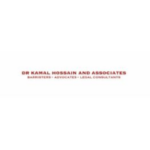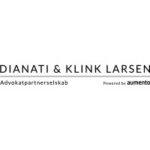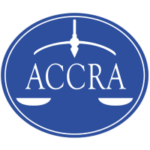-
Is your jurisdiction a common law or civil law jurisdiction?
Türkiye is a civil law jurisdiction, akin to most continental law countries, with its legal framework predominantly derived from the laws of various European jurisdictions.
-
What are the key statutory/legislative obligations relevant to construction and engineering projects?
In Turkish law, construction and engineering projects give rise to a range of statutory obligations stemming from both private and public law sources. These obligations encompass not only contractual relationships but also administrative and technical regulations.
Contractual obligations are primarily governed by the Turkish Code of Obligations No. 6098 (“TCO”). For instance, under Articles 471 and 474–478, the contractor is required to complete and deliver the work in accordance with the contract and is liable for any defects and warranty claims. The employer, in turn, is obliged to pay the contract price and to take delivery of the completed work.
On the public law side, various statutory duties arise under administrative legislation such as the Code of Zoning No.3194 (“CZ”), which imposes obligations including the requirement to obtain a construction permit. Similarly, Code on Building Inspection No.4708 (“CBI”) introduces obligations aimed at ensuring structural safety and enhancing public oversight during the construction process.
Furthermore, extensive obligations relating to worker safety arise under the Code of Occupational Health and Safety No. 6331 (“COHS”). These include, inter alia, the provision of protective equipment and the mandatory employment of occupational safety specialists and workplace physicians.
-
Are there any specific requirements that parties should be aware of in relation to: (a) Health and safety; (b) Environmental; (c) Planning; (d) Employment; and (e) Anti-corruption and bribery.
(a) health and safety; the contractor is responsible for taking and supervising all necessary occupational health and safety measures at the workplace. According to the decision of the Court of Cassation in a construction contract, the contractor is considered an expert in the performance of the work and undertakes to deliver a result referred to as work. The contractor does not receive instructions from the Employer and is independent of it. If the contractor employs workers, they also assume the role of employer in relation to those employees. Therefore, in such contractual relationships, the contractor is obliged to implement and supervise occupational health and safety precautions in compliance with the occupational health and safety regulation. The employer, on the other hand, is not subject to the same obligations. Liability on the part of the employer would only arise in cases of fault falling outside the scope of occupational safety legislation (Court of Cassation, 15th Civil Chamber, E. 2006/7446, K. 2007/5841, dated 01.10.2007). Furthermore, the contractor may be required to appoint an occupational safety specialist or a workplace doctor (Article 6 of the COHS). Non-compliance with these obligations may result in administrative fines and, in the event of a workplace accident, potential criminal liability.
(b) environmental issues; for some projects, an Environmental Impact Assessment (EIA) report is required before the tender. The last paragraph of Article 5 of the Code of Public Procurement No. 4734 (“CPP”) stipulates that, in order to tender for works for which an EIA report is required, an EIA positive certificate must be obtained. Code on Environment No. 2872 (Article 10) and the Environmental Impact Assessment Regulation stipulate that it is obligatory to carry out EIA studies and to obtain an EIA positive decision / EIA not required decision when necessary. As a matter of fact, the Public Procurement Authority has stated that the EIA positive certificate must be obtained before the tender.1
(c) planning; the contractor is required to carry out construction works in compliance with the applicable zoning legislation. In this regard, Code of Zoning No.3194 regulates the execution of construction activities in accordance with approved plans, as well as scientific, health, and environmental conditions. Accordingly, it is mandatory to obtain the necessary permits from the relevant municipal authorities and governorships within the framework of the zoning regulations. Notably, the Code of Zoning No.3194 pertains to public order and, as such, has a mandatory nature.2
(d) employment; in Turkish law, employment relationships in the construction and engineering sectors are governed by both general labour regulations and sector-specific provisions. Under Article 8 of the Labour Code No. 4857 (“LC”), employment contracts with a duration of one year or more must be in writing. Furthermore, Articles 32 and 34 of the LC mandate the full and timely payment of wages via bank transfer. Employing unregistered workers is prohibited and subject to sanctions under Article 102 of the Code of Social Security and General Health Insurance No. 5510 (“CSSGHI”).
Subcontracting, which is commonly used in the sector, is strictly regulated under Article 12 of the LC and the Regulation on Subcontracting. The primary employer bears joint and several liability for the rights of subcontractor employees and may not delegate core business activities to a subcontractor.
Given that the construction sector is classified as “very hazardous” under the COHS, employers must fulfil extensive obligations. These include conducting risk assessments (Art. 10), employing occupational safety experts and workplace physicians (Art. 6), providing occupational health and safety training (Art. 17), and, where applicable, entering into agreements with Joint Health and Safety Units (OSGB in Turkish).
In cases where foreign engineers or technical staff are employed, a work permit must be obtained under the Code of International Labour Force No. 6735 (“CILF”). Additionally, for professions such as engineering, the recognition of academic qualifications by the Council of Higher Education (YÖK in Turkish) may be required (Art.20 of the CILF).
Non-compliance with these obligations can lead to significant administrative penalties, liability arising from workplace accidents, and reputational damage, particularly in large-scale or internationally financed projects.
(e) anti-corruption and bribery; in Turkish law, while there are no highly specific statutory provisions addressing anti-corruption and bribery within employment relations in construction and engineering projects, several legal frameworks impose significant obligations aimed at preventing such misconduct. The Turkish Penal Code No. 5237, particularly Article 252 and following, criminalizes bribery not only involving public officials but also among private sector employees. Acts of corruption by employees may result in both criminal liability and labour law consequences. Under Article 25/II-(e) of the LC, an employer may lawfully terminate an employment contract without notice if the employee breaches loyalty obligations or abuses the employer’s trust. In public procurement projects, Article 17 of the CPP prohibits acts of bribery and other corrupt practices, which may lead to disqualification from tenders and administrative sanctions.
Additionally, the TCO and the Turkish Commercial Code No. 6102 (“TCC”) impose duties of good faith and loyalty on company directors and representatives. Türkiye is also a party to key international instruments such as the United Nations Convention against Corruption and the OECD Anti-Bribery Convention, which promote the implementation of internal controls, compliance programs, and ethical standards within private sector entities. Accordingly, employers are strongly advised to implement internal monitoring mechanisms, provide anti-bribery training, and include explicit anti-corruption provisions in employment contracts.
Footnote(s):
1 Gürsel Özkan, Danıştay Kararları Işığında Kamu ihale Hukukuna Egemen Olan Temel İlkeler, p.277.
2 İlker Hasan Duman, İnşaat Hukuku, p. 346 and 348.
-
What permits, licences and/or other documents do parties need before starting work, during work and after completion? Are there any penalties for non-compliance?
In Turkish law, a number of permits, licences, and documents are required at different stages of a construction or engineering project, each governed by specific statutory provisions.
To begin with, obtaining a construction permit is mandatory. According to Article 21 of the CZ, no construction work may commence without securing a building permit from the relevant municipality. This permit is essential for ensuring legal compliance and adherence to safety standards. Depending on the nature and scope of the project, additional documents such as planning permissions and geotechnical reports may also be required.
During the construction phase, structural safety must be maintained through regular building inspections. Pursuant to Article 2 of the CBI, large-scale projects must be monitored by an independent inspection firm, which is responsible for submitting regular compliance reports. These procedures help ensure that the construction progresses in line with structural safety norms, occupational health requirements, and environmental regulations.
Upon completion of the construction, an occupancy permit (iskan in Turkish) must be obtained under Article 30 of the CZ. This permit confirms that the building is fit for use and complies with public health and safety standards.
Non-compliance with these obligations can result in serious legal and administrative consequences. For example, commencing construction without a valid permit may lead to significant penalties under Article 42 of the CZ. Similarly, failure to comply with occupational safety rules may trigger administrative fines or tort liability for workplace accidents under the relevant provisions of the COHS. Breaches of building inspection requirements may also result in licence cancellations or further sanctions under the CBI.
In conclusion, construction and engineering projects in Türkiye are subject to a detailed legal framework that imposes obligations at each stage—before, during, and after construction. Failure to adhere to these legal requirements can expose parties to substantial risks, both financial and legal. Therefore, full compliance with all relevant permitting and inspection procedures is essential.
-
Is tort law or a law of extra-contractual obligations recognised in your jurisdiction?
Under Turkish law, tort and extra-contractual liability are recognised and governed by the TCO. Pursuant to Article 49 of the TCO, any person who unlawfully and culpably causes harm to another is obliged to compensate for such damage. The establishment of tortious liability requires the presence of five key elements: (i) an act or omission, (ii) fault (intent or negligence), (iii) unlawfulness, (iv) damage, and (v) a causal link between the act and the damage.3
While fault-based liability constitutes the general rule in Turkish tort law, strict liability is also provided for in certain circumstances, particularly in areas concerning public interest and environmental protection. For example, Article 28 of the CE stipulates that those who cause environmental damage may be held liable irrespective of fault, thus adopting an objective liability regime.
In addition, employers may also be held liable for the torts committed by their employees during the performance of their duties, as per Article 66 of the TCO. This provision imposes vicarious liability on employers for the acts of their employees that cause harm to third parties.
In conclusion, the Turkish legal system recognises both fault-based and strict liability in tort, offering injured parties a legal basis to seek compensation for damages arising from unlawful and harmful acts outside the scope of contractual obligations.
Footnote(s):
3 A Short Guide to Turkish Tort Law, AES Academy
-
Who are the typical parties involved in a construction and engineering project?
Under Article 26 of the TCO, the parties to a contract may be freely determined. In construction and engineering projects, the parties typically involved are the employer and the contractor. In the context of public procurement contracts, however, specific rules apply regarding the parties. One of the parties to a public procurement contract is the contracting authority (as defined under Article 2 of the CPP, while the other party is the tenderer/contractor. Article 4 of the CPP defines the “Contracting Authority” in the simplest terms as procuring authorities and institutions covered by this Law. The “Tenderer” is defined as the supplier, service provider or works contractor submitting tender for procurement of goods, services or works.
Upon award of the tender and execution of the public procurement contract, the tenderer obtains the status of contractor and becomes responsible for the obligations of the contractor under the contract (Article 4 of the CPP).
Additionally, with regard to the tenderer/contractor status, the CPP defines those eligible to be tenderers as “natural or legal persons, or joint ventures formed by those persons, operating in the field of the subject matter of contract, and have purchased the procurement or pre-qualification documents.” (Article 4 of the CPP).
In both international and domestic contracts, it is common to observe that contractors participate in tenders as joint ventures or consortiums. Pursuant to Article 14 of the CPP, joint venture partners are jointly and severally liable to the contracting authority.
Beyond the main parties to the contract, the contractor may engage subcontractors for the performance of certain parts of the work as per the contract. In contracts governed by the CPP, prior approval of the contracting authority is required for such subcontracting arrangements.
From a financial perspective, funders such as the European Bank for Reconstruction and Development (EBRD), World Bank, and the European Union play a significant role in the construction and engineering projects.
Furthermore, consultants encountered in FIDIC contracts are not party to the main contract but are engaged under a separate agreement with the employer and are responsible for supervising and ensuring that the contract is properly performed.
-
What are the most popular methods of procurement?
In 2024, 68.54% of the procurements conducted under CPP were carried out through the open tendering procedure, 31.26% through the negotiated procedure, and 0.20% through the restricted procedure, in terms of the number of tenders. From a financial perspective, 55.16% of the procurement were made via the open tendering procedure, 43.79% via the negotiated procedure, and 1.05% via the restricted procedure.4
Footnote(s):
-
What are the most popular standard forms of contract? Do parties commonly amend these standard forms?
In Türkiye, the most commonly used standard forms of contract are the FIDIC contracts and the standard contracts (“Tip Sözleşmeler” in Turkish) regulated under the Code of Public Procurement Contracts No. 4735 (“CPPC”). In construction works carried out in Türkiye, the FIDIC Red Book is more frequently applied.
According to Article 5 of the CPPC, “Form contracts shall be published in the Official Gazette in order to assure uniformity in implementation of this Law in connection with procurement of goods, services, and works. Any contracts to be made by the contracting entities shall be drawn up in accordance with the provisions of the form contract.”
Following the execution of the contract, the contract provisions on matters as stated below may be amended after contract signing , provided that the contract price is not exceeded and that the contracting entity and the contractor mutually agree: (a) Location of performance of work or place of delivery, and (b) Duration of work and conditions of payment in accordance with such duration provided that it is completed or delivered before its time (as originally specified in the contract). (Article 15 of the CPPC)
Additionally, in the context of FIDIC, amendments to contract provisions are often related to matters concerning payment and time, risk allocation and responsibilities, dispute resolution, and escalation.
-
Are there any restrictions or legislative regimes affecting procurement?
The CPP and the CPPC are the primary legislative instruments governing public tenders. For example, pursuant to Article 11 of the CPP, those listed below cannot participate in any procurement, directly or indirectly or as a sub-contractor, either on their own account or on behalf of others: a) those who are temporarily or permanently prohibited from participating in public procurement by contracting authorities or court decision pursuant to provisions of this Law or other laws; and those who are under sentence for the crimes falling under the scope of the Code of Prevention of Terrorism No. 3713, dated 12.04.1991, or for organized crimes, or for offence of bribing public officials in their own country or in a foreign country. b) those for whom the relevant authorities decided that they were involved in fraudulent bankruptcy, c) the contracting officers of the contracting authority carrying out the procurement process, and the persons assigned in boards having the same authority, d) those who are assigned to prepare, execute, complete and approve any procurement transaction relating to the subject matter of the procurement conducted by the contracting authority, g) The contractors providing consultancy services for the subject matter of the procurement cannot participate in the procurement of such work. Similarly, the contractors of the subject matter of the procurement cannot participate in procurement of consultancy services for such work. […]
The tenderers who participate in a procurement procedure despite these prohibitions, shall be disqualified, and their tender securities shall be registered as revenue. Moreover, in case the contract is awarded to one of those tenderers due to failure in detecting such situation during evaluation stage, the procurement procedure shall be cancelled and tender security shall be registered as revenue.
According to Article 17 of the CPP, the following acts or conducts are prohibited in procurement procedures: a) to conduct or attempt to conduct procurement fraud by means of fraudulent acts, promises, threats, unlawful influence, undue interest, collusion, extortion, bribery or other actions, b) to cause confusion among tenderers, to prevent participation, to offer collusion to tenderers or to encourage it, to conduct actions which may influence competition or tender decision, c) to forge documents or securities, to use forged documents or securities or to attempt these. d) to submit more than one tender by a tenderer on his own account or on behalf of others, directly or indirectly, as the principal person or as representative of others, apart from where submitting alternative tenders is allowed e) to participate in procurement procedure although prohibited pursuant to Article 11.
Another provision that may be regarded as an indirect restriction on foreign participation is Article 63 of the CPP. Under this provision, there are regulations regarding the participation of only domestic bidders in tenders and the granting of price advantage in favour of domestic bidders and bidders offering domestic goods.
Article 38 of the CPP regulates the procedure regarding abnormally low tenders. According to this provision, before rejecting tenders with abnormally low prices, the tender commission shall request, in writing and within a specified period, detailed explanations from the tenderers regarding the components of the offer it considers significant. Following the evaluation, the tenders of those who fail to provide a written explanation or whose explanations are deemed insufficient shall be rejected.
-
Do parties typically engage consultants? What forms are used?
Under Turkish law, it is common practice for parties—particularly public authorities or employers—to engage consultants in construction and engineering projects.
In public projects, according to the CPP, Article 48 states that services in technical, financial, legal or similar fields such as engineering and architecture, surveying and project, map and cadastre, development plan in any scale, development application, preparation of Environmental Impact Assessment Reports, plan, software development, design, drafting of technical specifications, supervision and controlling shall be procured from consultancy service providers. Subject to the provisions contained in this section, only the restricted procedure shall be used in procurement of consultancy services. However, the consultancy services estimated costs of which are below the four times of upper limit established for procurement of services in subparagraph (2) of paragraph (b) of Article 13 may be carried out as procurement of services.
Thus, the contracts concluded with consultants are generally based on the standard forms set forth in the Implementation Regulation on the Procurement of Consultancy Services.
In private sector projects, within the framework of the freedom of contract, the form and scope of consultancy agreements are more flexible and are determined by mutual agreement between the parties.
-
Is subcontracting permitted?
According to Article 471/3 of the TCO subcontracting is allowed provided that the nature of the work does not necessitate the contractor’s personal involvement. However, the parties are free to restrict or exclude the contractor’s right to engage subcontractors. Construction contracts often contain restrictive provisions, such as granting the employer the right to propose or mandate specific subcontractors, or the right to reject certain subcontractors, particularly if they fail to meet defined criteria.
-
How are projects typically financed?
Most public procurement projects are funded directly through the tendering authority’s budget. For larger projects, financing often involves public-private partnership (PPP) schemes. These can include models such as build-operate-transfer (BOT), where the selected bidder is responsible for securing financing—often supported by a treasury guarantee.
-
What kind of security is available for employers, e.g. performance bonds, advance payment bonds, parent company guarantees? How long are these typically held for?
Performance bonds and advance payment bonds are the most commonly used forms of security by employers. Advance payment bonds are typically released once the contractor has repaid the advance through progress payments. Performance bonds, on the other hand, are generally returned upon final acceptance of the project, after the defects liability period has ended. Some contracts may permit a partial release of the performance bond at the provisional acceptance stage.
-
Is there any specific legislation relating to payment in the industry?
There is no specific legislation relating to payment in construction contracts. Payment terms are usually stipulated under the contract.
-
Are pay-when-paid clauses (i.e clauses permitting payment to be made by a contractor only when it has been paid by the employer) permitted? Are they commonly used?
Yes, “pay-when-paid” clauses are permitted in principle and they are fairly common in subcontract agreements. However, the subcontractor’s receivable will eventually become due if the conditional amount is not collected from the employer or other relevant third parties within a reasonable time.
-
Do your contracts contain retention provisions and, if so, how do they operate?
Retention money as performance security can be used in combination with a performance bond, or as a second option in case of failure by the contractor to provide a bond. The repayment of retention money is subject to similar rules as performance bonds; however they can be repaid earlier upon submission of an equivalent bond.
-
Do contracts commonly contain liquidated delay damages provisions and are these upheld by the courts?
Liquidated delay damages are common in Turkish construction industry, and they are generally upheld by the courts. Liquidated damages are subject to the extension of time provisions in contract.
According to Article 115 of the TCO, agreements limiting the liability of one party from gross negligence or wilful misconduct are invalid. Liquidated damages may be deemed invalid under this article if they hold the contractor responsible for the employer’s delay caused by gross negligence or wilful misconduct.
Under Turkish law compensation cannot be a tool for enrichment. Accordingly, the judge has the authority to reduce excessive liquidated damages.
-
Are the parties able to exclude or limit liability?
Yes, but this is limited by Article 115 of the TCO, which provides that agreements limiting the liability of one party from gross negligence or wilful misconduct are invalid.
-
Are there any restrictions on termination? Can parties terminate for convenience? Force majeure?
Termination rights are generally unrestricted as per the principle of freedom of contract. The employer may terminate the contract for convenience in accordance with Article 484 of the TCO, but the contractor does not have that right. Under Article 485 of the TCO, the contractor may terminate the contract if the completion of the work is rendered impossible because of the employer. This would be the only legal termination right for the contractor aside from his rights under the general principles of contract law relating to breach of contract.
In accordance with the principle of freedom of contract, the parties to a contract are free to determine the events to be accepted as force majeure and the consequences thereof. The parties are free to allocate the respective risks in the contract due to unavoidable and unforeseen events.
As a legal remedy, a party that fails to fulfil its obligations due to force majeure may invoke the concept of hardship under Article 138 of the TCO.
-
What rights are commonly granted to third parties (e.g. funders, purchasers, renters) and, if so, how is this achieved?
In accordance with the privity of contracts principle, rights under contracts exist only between the parties. As an exception to the rule, Article 129/2 of the TCO provides that the third party may also request the performance if this aligns with the intent of the parties or with custom and usage. This exception generally does not apply to construction contracts. The parties may determine such obligations that are aimed at benefitting a third party, but this would not automatically give that third party the right to ask for performance. Such obligations could be related to access to the site or project documents, or prior consent to the transfer of the contract to the main employer.
-
Do contracts typically contain strict provisions governing notification of claims for additional time and money which act as conditions precedent to bringing claims? Does your jurisdiction recognise such notices as conditions precedent?
In international construction practice, time bars are often established as the precondition for the entitlement to a claim, such as time extension and additional payment. TCO establishes freedom of contract in its Article 26 (unless the provisions stipulated under a contract are against the mandatory provisions of Turkish law and public policy). This means that in principle the parties may agree to strict procedural requirements such as strict provisions governing the notification of claims.
Under Turkish law, according to Article 117(1) of the TCO, the debtor of a due (mature) debt falls into default upon the receipt of a notice from the creditor. However, there are certain circumstances where a notice is not mandatory. According to Article 117(2), if the due date for the performance of the obligation has been jointly determined by the parties or set by one of them through proper notice based on a reserved right in the contract, the debtor falls into default upon the lapse of that date and a separate notice is not required.
Under the General Specifications for Construction Works Article 29(7), an appendix to the CPPC, the contractor must notify the administration in writing within 20 days of the event requiring a time extension and provide official documentation proving the force majeure. This 20-day notification requirement does not apply to delays caused by the administration. Article 29(8) sets out that written notifications that are not submitted on time shall not be taken into consideration, and the contractor cannot request a time extension after the application period has expired. However, if the notification is made while the force majeure event is ongoing, it may be considered effective retroactively for up to 20-day prior.
As for the notice requirement being considered a condition precedent, the Turkish courts interpret clauses that restrict access to rights in a narrow manner. The notice requirement clause must be drafted unambiguously, the party invoking the clause must act in good faith, there must not be a gross imbalance or an abuse of dominant position. Failure to follow such notice procedures may lead to loss of entitlement. There are also various other factors to be taken into account while making any legal qualification concerning the binding effect of the notice / time bar provisions such as the established practice among the contracting parties or compliance of the time bar provisions with the good faith principle.
Under Turkish law, the parties to a contract must carry out their obligations in accordance with the principle of good faith under Article 2 of the Turkish Civil Code No. 4721. In a construction contract, this is often invoked in terms of time bar and what may be considered a notification. Documented communication, such as letters issued according to the contract requirements, registered mail, secure electronic messages, notarized communication may constitute records that the party has followed its obligations.
Finally, we should note that in terms of merchants, the threshold for interpreting contractual provisions is higher because it is expected from the contractors, deemed as prudent merchants, to be aware of both the contractual provisions and the relevant facts that may affect the contract term. Therefore, lack of compliance with the notice provision may result in the loss of entitlement to make a claim by the contractor.
-
What insurances are the parties required to hold? And how long for?
Contractors usually are required to obtain and maintain Contractor Insurances from the Effective Date and continuing until the expiry of the Warranty Period or if applicable, the Extended Warranty Period. These insurances are typically Employer’s Liability Insurance, Workers’ Compensation Insurance, Contractor’s Plant and Equipment Insurance, Automobile Liability Insurance, Subcontractor Insurances (during the time which they are involved in performance of the Work, Employers Liability insurance, Workers’ Compensation insurance, Public and Automobile Liability insurances and insurance providing cover against loss or damage to any construction tools and equipment owned by the Subcontractor or for which the Subcontractor accepts responsibility.)
-
How are construction and engineering disputes typically resolved in your jurisdiction (e.g. arbitration, litigation, adjudication)? What alternatives are available?
The answer to this question depends on the nature of the contract. The most common method used in Türkiye for resolution of disputes arising from contractual disputes between Turkish companies is litigation before the local courts. Whereas in international projects, especially when there is a foreign element in a project, for example, if there are one or more foreign company parties to a construction and engineering contract or if such project is financed by foreign financial institutions, international arbitration is the most preferred method of dispute resolution.
There are two main codes regulating arbitration. If a dispute does not include a foreign element as defined under the Code of Turkish International Arbitration No. 4686 (“CIA”) and the place of arbitration is stated as Türkiye, then the Turkish Civil Procedure Code No. 6100 (“CPC”) is applicable (as per Article 407(1) of the CPC). If the dispute includes a foreign element and the place of arbitration is stated as Türkiye, then CIA will be applicable (Article 1(2) of the CIA). In practice, in international construction contracts, the seat of arbitration is often chosen from a neutral place agreed on by the parties in their contract, ICC and LCIA are among the institutions often opted for by the parties.
Turkish law does not provide a detailed legal framework for the adjudication process. However, the principle of freedom of contract under Article 2 of the Turkish Civil Code No. 4721 allows parties to establish and define an adjudication procedure within their contracts.
Turkish Code on Mediation in Civil Disputes No. 6325 (“CMCD”) was enacted in 2012. As per Article 18A (18) of the CMCD, in cases where special codes require the use of arbitration or another alternative dispute resolution method, or where an arbitration agreement exists, the provisions on mandatory mediation as a precondition to litigation do not apply.
-
How supportive are the local courts of arbitration (domestic and international)? How long does it typically take to enforce an award?
Turkish courts respect the principle of party autonomy and apart from very limited cases, such as interim measures or setting aside applications, they refrain from intervening in arbitral proceedings. We can say that Turkish courts are generally supportive of both domestic and international arbitration. In any case, if there is an arbitration clause in the contract, then the dispute cannot be resolved before the local courts. According to 116(1)(b) of the CPC an objection that the dispute must be resolved through arbitration is classified as a preliminary objection under Turkish procedural law.
Türkiye is a party to the New York Convention on the Recognition and Enforcement of Arbitral Awards (“NYC”), which means that if the requirements of the NYC are met, in a dispute arising from a contract, where the parties have agreed to resolve the dispute through arbitration, a final arbitral award rendered outside of Türkiye will be recognized and enforced by Turkish courts without a review of the merits of the case.
The enforcement of an international arbitral award may take 5-9 months to 18 months, depending on the duration of serving notice abroad, complexity of the case, whether the award has been challenged and/or the workload of the competent court.
-
Are there any limitation periods for commencing disputes in your jurisdiction?
Yes, there are various limitation periods for commencing disputes in Turkish law, depending on the nature of the claim. Article 146 of the TCO sets out that unless otherwise provided by law, all claims are subject to a ten (10) year statute of limitations. Article 478 of the TCO is a specific provision regulating the statute of limitations for claims regarding the defective works. In this case, the statute of limitations is two (2) years for movable works and five (5) years for the immovable structures. According to this provision, if the defect originates from the gross negligence of the contractor, then the statute of limitations for bringing these claims is twenty (20) years from the date of delivery of the construction regardless of whether the construction is qualified as a movable or immovable property.
Article 30 of the CPPC sets forth a statutory limitation period of 15 years, starting from the date of the final acceptance of the works. As per this article, in construction works, the contractor and subcontractors are jointly and severally liable for any damages arising from non-compliance with technical and professional standards, the use of defective materials, or similar reasons. This liability applies to the entire structure from the commencement date of the work until the final acceptance date and continues for a period of fifteen (15) years from the date of final acceptance approval.
-
How common are multi-party disputes? How is liability apportioned between multiple defendants? Does your jurisdiction recognise net contribution clauses (which limit the liability of a defaulting party to a “fair and reasonable” proportion of the innocent party’s losses), and are these commonly used?
Joint and several liability have been regulated under Turkish law. Multi-party disputes are relatively common in construction sector where several parties such as employers, contractors, subcontractors, consultants, and insurers are involved in the same project. In a typical scenario, the subcontractor could claim additional cost and extension of time, and it may be tied to the contractor’s claim against the owner. Similarly, the owner may claim delay or defect against the contractor under the main contract, the contractor may then pass this on to the subcontractor under the subcontract, or resort to the designer or the supplier under the relevant contract.
In joint ventures or consortium contracts, it is common that the members assume joint and several liability for the project obligations. Article 162 of the TCO sets forth joint and several liability of debtors and Article 636 of the TCC sets forth the joint and several liability of partners in JVs. Article 2(6) of the LC states that in cases where there is a subcontracting relationship, the principal employer is jointly and severally liable with the subcontractor for the obligations arising from the labour law toward the subcontractor’s employees.
Joint and several liability can help the claimant to recover the full amount of damages from any one of the defendants. TCO (Articles 61–66 for tort and 162–166 for contract law) allows courts to determine the degree of fault attributable to each party. Courts often appoint experts to assist with the apportionment, especially in construction cases.
Net contribution clauses are not expressly regulated under Turkish law, however there is no impediment against agreeing on distributing the liability this way in a contract since the freedom of contract is a core principle in Turkish contract law. However, these clauses cannot affect third parties and cannot override statutory joint and several liability rules vis-à-vis third parties.
-
What are the biggest challenges and opportunities facing the construction sector in your jurisdiction?
The biggest challenges facing the construction sector in Türkiye is the rising inflation on material prices such as steel, cement and insulation, and labour. Financing construction projects are also becoming difficult due to credit conditions with high interest rates. These conditions make it challenging for lump sum contracts to be managed and more contractors and subcontractors apply for Adaptation of the contract due to changed circumstances or hardship as per TCO 138.
After the devastating earthquake of February 2023, there is a huge demand (and need) for earthquake-resilient infrastructure and housing.
-
What types of project are currently attracting the most investment in your jurisdiction (e.g. infrastructure, power, commercial property, offshore)?
Twelfth Development Plan issued by Directorate of Strategy and Budget of the Presidency of Türkiye entered into force in 2023 prioritizes accelerating urban transformation projects in the construction sector, with the focus on the renewal and reinforcement of buildings in earthquake-prone areas. The PPP model will continue to be implemented in infrastructure investments, and large-scale transportation and infrastructure projects such as airports, ports, and highways.
-
How do you envisage technology affecting the construction and engineering industry in your jurisdiction over the next five years?
Türkiye’s construction sector is embracing the Building Information Modelling (BIM) and in a few years, it is anticipated that the use of BIM may become obligatory for large public infrastructure projects.
Drone footage is already being used in the big infrastructure projects in Türkiye. This has potential for evolving into routine use of the drones for site inspection, surveying and tracking the construction progress.
Mobile mapping and high-precision laser scanners are being used in large scale projects. The high-definition surveying (HDS) scanning system, which can perform 360-degree corridor scans at speeds exceeding 80 km/h is also used to shorten the surveying in large scale projects. One example is the high-speed train project where high-precision laser scanners and HDS systems have been utilized for rail alignment, viaduct inspection, and geometric verification inside the tunnels.
3D printing technology can now be used to produce complex structural forms such as to produce a 3D-printed concrete block. Robotic systems and modular constructing techniques are also being integrated into construction processes.
The use of AI in design and the legal developments in terms of the liability from any miscalculated AI generated output and better protection against cyber crimes is also expected.
-
What do you anticipate to be the impact from ongoing supply chain issues and the escalation of material costs over the coming year?
Ongoing global supply chain bottlenecks and soaring material prices are dramatically affecting Türkiye’s construction industry. Over the past year, construction costs in Türkiye have surged by roughly 45–66%, driven largely by rapidly increasing material expenses such as cement, steel, and insulation materials. The high and unpredictable inflation also affects labour costs which was reported as doubled over the year. While Türkiye’s monetary policy targets the high inflation, interest rates have increased which made credits/loans expensive and hard to obtain. The coming year is anticipated to follow the same pattern.
It is therefore becoming common to include increase or adjustment of the price clauses in new contracts so that if the costs exceed a certain threshold, the contractor can recover some of that increase. Especially in public tenders, the construction contracts used to be lump-sum price with quite limited increase, but the volatility of the economy pushed both the decision makers and the contractors to seek for price adjustments clauses to share the burden of unforeseen costs.
At the beginning of 2024, Presidential Decree No. 8089, issued on 15 January 2024, was published in the Official Gazette No. 32431 on 16 January 2024, setting out the Principles on the Implementation of Provisional Article 7 of the CPPC. Under these Principles, construction contracts awarded in Turkish lira as per the CPPC prior to 1 March 2023, and still in force as of 28 December 2023, would benefit from an enhanced price adjustment mechanism for works performed between 1 January 2024, and 31 December 2024. This effectively shifted some cost risk back to the employer to keep projects moving. Under this decree, contracts that already had price-adjustment formulas saw their inflation coefficient raised from 0.90 to 1.00 (meaning 100% of the cost index increase is compensated, instead of only 90%) – and even up to 1.15 for certain government housing projects. For contracts that lacked any escalation clause, the government granted a flat 15% price uplift on the increase in the official producer price index. Importantly, contractors did not need to submit a written request to apply for the increased price adjustment. These adjustments significantly reduce contractors’ loss due to inflation, preventing project abandonment. These same measures allowed contractors to request up to 6 months extension on project deadlines if needed. For an extension of time to be granted, the contractor must submit a written application to the administration within 30 days from the date following the entry into force of the decree no 8089.
Construction lawyers applaud these steps, and many private contracts are following suit by negotiating similar provisions. Overall, the trend is toward proactive contract re-balancing whether through new clauses, renegotiation, or government policy to address the extraordinary cost environment and keep risk allocation fair under the circumstances.
Türkiye: Construction
This country-specific Q&A provides an overview of Construction laws and regulations applicable in Türkiye.
-
Is your jurisdiction a common law or civil law jurisdiction?
-
What are the key statutory/legislative obligations relevant to construction and engineering projects?
-
Are there any specific requirements that parties should be aware of in relation to: (a) Health and safety; (b) Environmental; (c) Planning; (d) Employment; and (e) Anti-corruption and bribery.
-
What permits, licences and/or other documents do parties need before starting work, during work and after completion? Are there any penalties for non-compliance?
-
Is tort law or a law of extra-contractual obligations recognised in your jurisdiction?
-
Who are the typical parties involved in a construction and engineering project?
-
What are the most popular methods of procurement?
-
What are the most popular standard forms of contract? Do parties commonly amend these standard forms?
-
Are there any restrictions or legislative regimes affecting procurement?
-
Do parties typically engage consultants? What forms are used?
-
Is subcontracting permitted?
-
How are projects typically financed?
-
What kind of security is available for employers, e.g. performance bonds, advance payment bonds, parent company guarantees? How long are these typically held for?
-
Is there any specific legislation relating to payment in the industry?
-
Are pay-when-paid clauses (i.e clauses permitting payment to be made by a contractor only when it has been paid by the employer) permitted? Are they commonly used?
-
Do your contracts contain retention provisions and, if so, how do they operate?
-
Do contracts commonly contain liquidated delay damages provisions and are these upheld by the courts?
-
Are the parties able to exclude or limit liability?
-
Are there any restrictions on termination? Can parties terminate for convenience? Force majeure?
-
What rights are commonly granted to third parties (e.g. funders, purchasers, renters) and, if so, how is this achieved?
-
Do contracts typically contain strict provisions governing notification of claims for additional time and money which act as conditions precedent to bringing claims? Does your jurisdiction recognise such notices as conditions precedent?
-
What insurances are the parties required to hold? And how long for?
-
How are construction and engineering disputes typically resolved in your jurisdiction (e.g. arbitration, litigation, adjudication)? What alternatives are available?
-
How supportive are the local courts of arbitration (domestic and international)? How long does it typically take to enforce an award?
-
Are there any limitation periods for commencing disputes in your jurisdiction?
-
How common are multi-party disputes? How is liability apportioned between multiple defendants? Does your jurisdiction recognise net contribution clauses (which limit the liability of a defaulting party to a “fair and reasonable” proportion of the innocent party’s losses), and are these commonly used?
-
What are the biggest challenges and opportunities facing the construction sector in your jurisdiction?
-
What types of project are currently attracting the most investment in your jurisdiction (e.g. infrastructure, power, commercial property, offshore)?
-
How do you envisage technology affecting the construction and engineering industry in your jurisdiction over the next five years?
-
What do you anticipate to be the impact from ongoing supply chain issues and the escalation of material costs over the coming year?



















